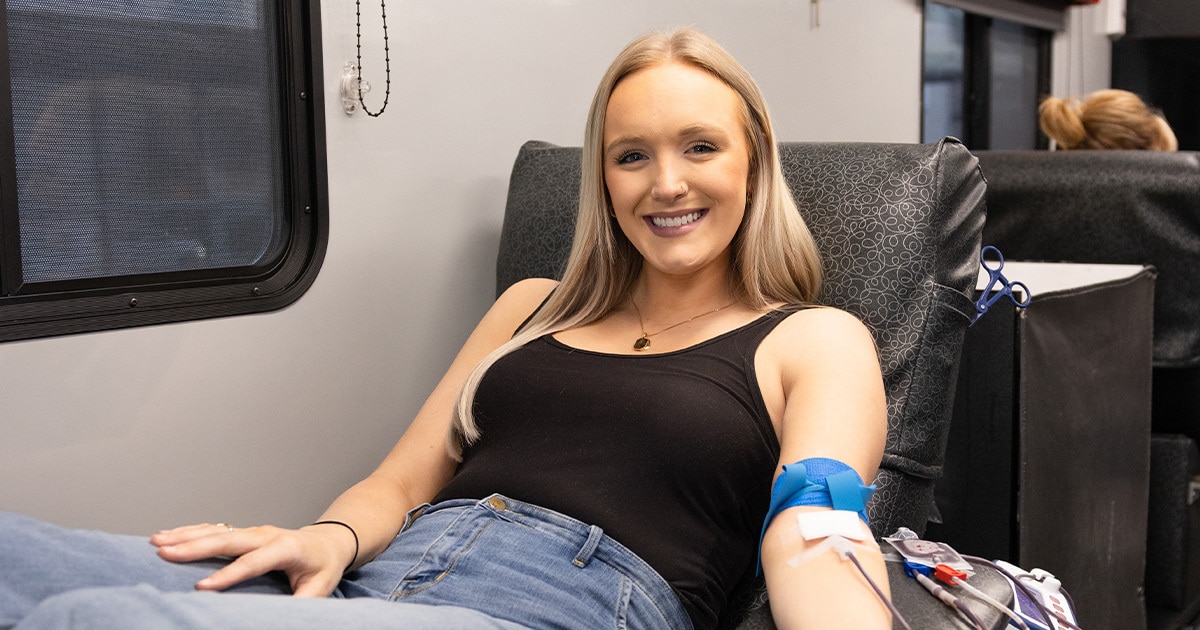
What Women Need to Know About Giving Blood
Donating blood or hosting a blood drive is a wonderful, selfless way to give back to your community. Each donation has the power to save up to three lives. Those lives could belong to anyone of any age, gender, or race, and we think that’s incredible! We are very grateful for all of our donors and hosts — you are the ones who make a difference and keep our life-saving mission alive.
Of course, there are some donation requirements in place to ensure our generous donors are eligible, and women face some unique situations that can affect their ability to donate blood. That’s why we’re here today. We want to answer some of the questions that matter most to our female donors.
Can women donate blood while pregnant?
Many of our regular female donors are curious if they can continue giving blood if they are expecting a child. As much as we appreciate their desire to donate, the answer is no.
Pregnant women need to focus on keeping their babies healthy, and donating blood is counteractive to this goal. The body needs blood and iron to support the fetus during pregnancy, and a lack of iron and nutrients after giving blood can increase the risk of complications like anemia. It can also compromise the health of the mother and the baby. The average woman needs 350-500 more milligrams of iron while pregnant to prevent an iron deficiency, so that’s why pregnant women cannot give blood.
So, when can expectant mothers give blood again? The FDA recommends waiting six weeks after giving birth, which allows the woman time to heal and recover from pregnancy and delivery. Consulting a physician is best before giving blood again.
New mothers should also avoid giving blood if they plan to breastfeed. The World Health Organization (WHO) warns against donating blood while breastfeeding, as this can limit the vital nutrients going to the newborn. They recommend waiting nine months after giving birth or three months after the baby is weaned before the mother starts giving blood again.
While women shouldn’t give blood while pregnant or breastfeeding, they do have the option to donate cord blood, the blood left over in the placenta and umbilical cord after the baby is born. Incredibly valuable to the medical community, cord blood is rich in stem cells, which are used to develop treatments to help cancer patients and other immunocompromised individuals.
It’s important to note — you will not be asked about pregnancy during the screening process before giving blood. If you think you might be pregnant, we encourage you to take a pregnancy test before your blood donation appointment to make sure.
If you still want to give back to the community but cannot donate blood yourself, consider hosting a blood drive. Get in touch with us, and one of our friendly TBC staff members will be in touch to help you through the process.
Can women donate blood while menstruating?
Due to the nature of a period, it’s only natural to wonder whether or not it’s a good idea to give blood while menstruating. The good news is, yes, women can give blood while menstruating. Of course, if you are experiencing a particularly heavy cycle, waiting until your period is over may be best, as giving blood could cause your iron levels to drop. This temporary drop could make you feel fatigued after your donation or could make you ineligible at the time. We want all of our donors to have a rewarding experience, and there’s no shame in waiting another week or two to donate just to be safe.
As with any other donor, women must meet a few other requirements before giving blood. Donors must be at least 17 years old (or 16 years old with the permission of a parent or guardian, 16 and 17 with parental consent in North Carolina), weigh at least 110 pounds, and be in generally good health. As a general rule, potential donors should avoid giving blood if they feel unwell or have a fever.
The Blood Connection is incredibly grateful for every donor who gives selflessly and saves lives. To learn more about The Blood Connection and find a donation location near you, visit our website or give us a call. We would love to hear from you and tell you more about how you can give back to your community.

